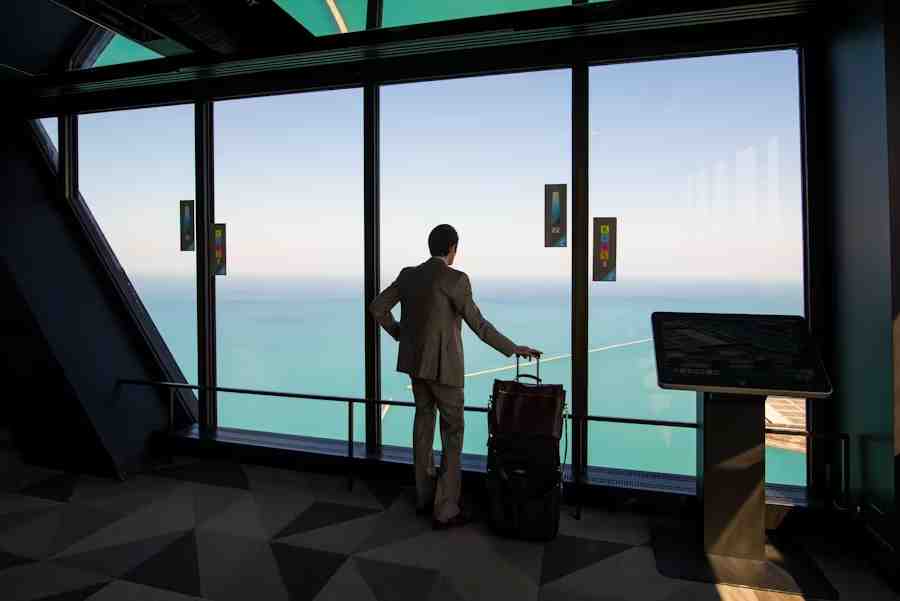Business Travel in a Post-Brexit UK: What You Need to Know

Since the United Kingdom's formal departure from the European Union, the landscape for business travel between the UK and the EU has fundamentally changed. The era of frictionless movement, where an EU citizen could travel to the UK for work with little more than an ID card, is over. While tourists can still travel freely for short visits, the regulations for those traveling for business purposes are now more complex and more strictly enforced. For companies and their employees, understanding these new rules is essential to ensure a smooth, compliant, and successful business trip. Failure to comply can result in being denied entry at the border, which can jeopardize important meetings and damage business relationships.
This guide breaks down the key changes to immigration, customs, and administrative processes that EU, EEA, and Swiss citizens need to be aware of when traveling to the UK for business.
Entry Requirements: The "Permitted Activities" Test
For most short-term business trips, EU, EEA, and Swiss citizens do not need a visa to travel to the UK. You can typically enter as a "Standard Visitor" and stay for up to six months. However, the crucial distinction lies in the type of activities you plan to undertake during your visit. The UK Home Office has a specific list of "Permitted Activities" for business visitors. As long as your trip falls squarely within these guidelines, you should not need a visa.
Permitted Activities for a Standard Visitor Include:
- Attending meetings, conferences, seminars, and interviews.
- Negotiating and signing deals and contracts.
- Undertaking site visits and inspections of UK-based suppliers or clients.
- Gathering information for your employment overseas (e.g., market research).
- Receiving certain types of training, provided it is for work purposes overseas and not provided by your UK-based company.
- Providing advice, consulting, or troubleshooting services to a UK client, as long as this is a small part of an overseas project and you are not being paid directly by the UK client for this specific work.
The Red Line: What Constitutes "Work"?
The critical line you cannot cross as a Standard Visitor is engaging in "work." The UK government defines work as being employed by a UK company, filling a role (even temporarily), or providing goods and services directly to the public. If your trip involves anything that could be construed as working in the UK, you will likely need to apply for a specific work visa before you travel. This could include:
- Being directly employed by a UK-based arm of your company.
- Undertaking a long-term project or secondment at a UK client's site.
- Engaging in paid work for a UK client that is not part of a larger international contract.
If there is any doubt, it is always best to consult with an immigration lawyer or check the detailed guidance on the UK government's official website.
Navigating the UK Border
The experience at the UK border is now different for EU citizens. Be prepared for more scrutiny than you may have been used to pre-Brexit.
- Carry Supporting Documents: This is the most important piece of advice. Do not travel empty-handed. It is highly advisable to carry a folder (physical or digital) with clear evidence of the purpose of your visit. This should include:
- A letter of invitation from your UK counterpart, if applicable.
- A letter from your primary employer (outside the UK) that clearly states the purpose and dates of your visit, confirms that you are employed and paid by your non-UK company, and that you will be returning to your job overseas after the trip.
- Proof of accommodation (hotel booking).
- A return ticket.
- E-Gates: Many EU, EEA, and Swiss citizens can still use the electronic e-gates at major UK airports, which can significantly speed up the immigration process. However, you are still subject to being stopped and questioned by a Border Force officer. If this happens, having your supporting documents ready will make the process much smoother. Be prepared to clearly and concisely explain the purpose of your visit, ensuring it aligns with the permitted business activities.
Customs and VAT
- Goods: If you are carrying commercial goods that you intend to sell in the UK, or samples for a trade show, you will need to make a customs declaration. The rules for this can be complex, so it's best to check the regulations in advance.
- VAT Reclamation: The process for EU businesses to reclaim Value Added Tax (VAT) on expenses incurred in the UK (like hotels and conference fees) has also changed. EU businesses now follow the same process as other non-UK businesses, which can be more complex and time-consuming. Using a specialized VAT reclamation service, often available through a modern travel management platform, is highly recommended to maximize your refund.
The key takeaway for post-Brexit business travel to the UK is to be prepared. Ensure your planned activities fall within the visa-free guidelines, carry clear and comprehensive documentation to prove the purpose of your trip, and be ready to answer questions at the border. By doing your homework, you can ensure your business trip is compliant and free of any unwelcome surprises.